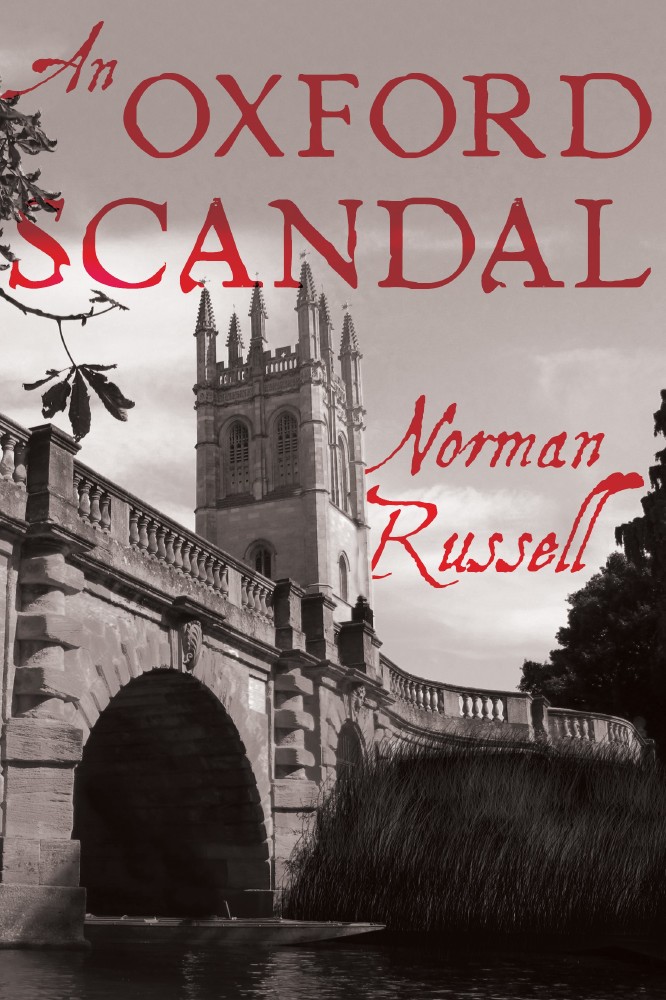Norman Russell’s twentieth novel has just been published by Matador

The Oxford Scandal
I have enjoyed two careers, one as a teacher of English for twenty-six years in a Liverpool comprehensive school, and then for the last eighteen years as a full-time novelist and academic writer.
My latest novel, An Oxford Scandal, is the third book featuring the terminally consumptive Oxford police detective, James Antrobus. The others were An Oxford Tragedy and An Oxford Anomaly.
Why choose a consumptive detective? Isn’t that rather morbid? My father, who was born in 1898, was a specialist TB nurse, who would regale my brother and me with heart-rending tales of his many heroic patients, most of whom faced inevitable death in the days before a cure for TB was found.
I created Antrobus to represent the many men and women who struggled to live life as fully as they could with this terrible disease. Time and time again he is about to solve a complex case when he suffers a collapse. Is there any effective help at hand?
Yes, because there is a rather special person on hand to drag him back from the brink of the grave. For the Antrobus novels contain a second protagonist, the Victorian pioneer doctor Sophia Jex-Blake. She is a genuine historical figure, whose life deserves to be better known. Born in 1840, she suffered all kinds of ignorant prejudice, but after many struggles succeeded in becoming both physician and surgeon. She is one of my heroines.
There are many women characters in my novels, and the late Victorian setting provides an opportunity to portray them achieving success and happiness in spite of various kinds of opposition from what one of them describes as “the lords of creation”.
At the same time, I don’t disparage men, unless they need disparaging. Inspector Box of Scotland Yard, in my Box series of novels is a chirpy Cockney with a high opinion of himself, but he always feels the need to consult his lady friend, the academic Louise Whittaker, to get an enlightening female slant on some aspect of his case. In my rural Warwickshire novels, Inspector Saul Jackson receives incisive help from his friend the widowed Sarah Brown.
Novelists shouldn’t preach to their readers, but they can provide, as I do, a sub-text that alerts the reader to the earlier inequalities suffered by women, and to make them more concerned for the continuing injustices of our own age.
I’d like my readers to know how tired I am of the silly stereotypes of professional women appearing in television drama – hard-as-nails coroner’s officers, unmoved by the most gruesome corpses, senior women police officers either drunk or dotty, and worst of all, those female Oxford professors who either fall for boys young enough to be their grandsons, or murder colleagues and family because they’re barking mad.
My women characters are strong and credible because I’m not ashamed to acknowledge the female side of my own nature, which can empathise with many women’s concerns.

